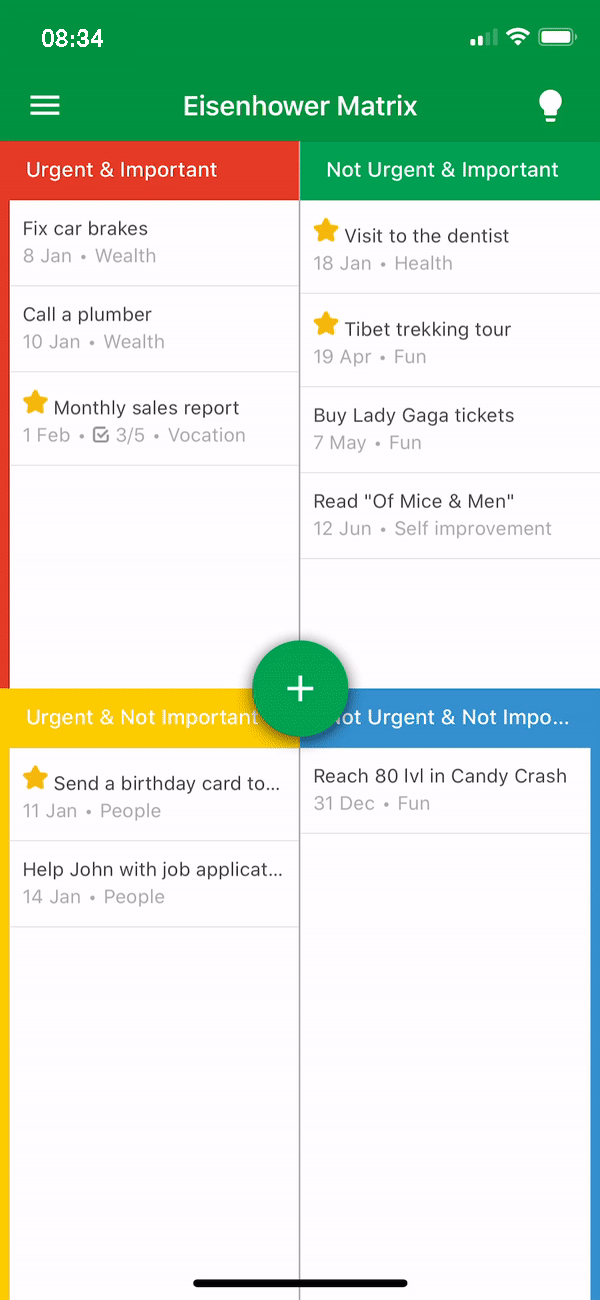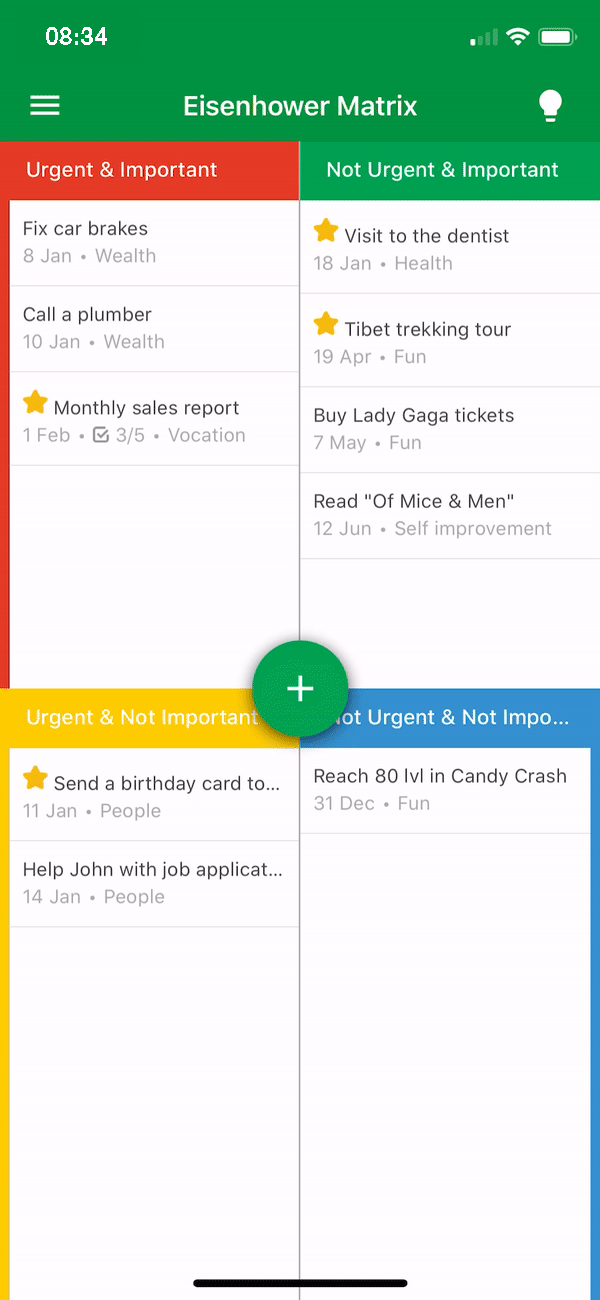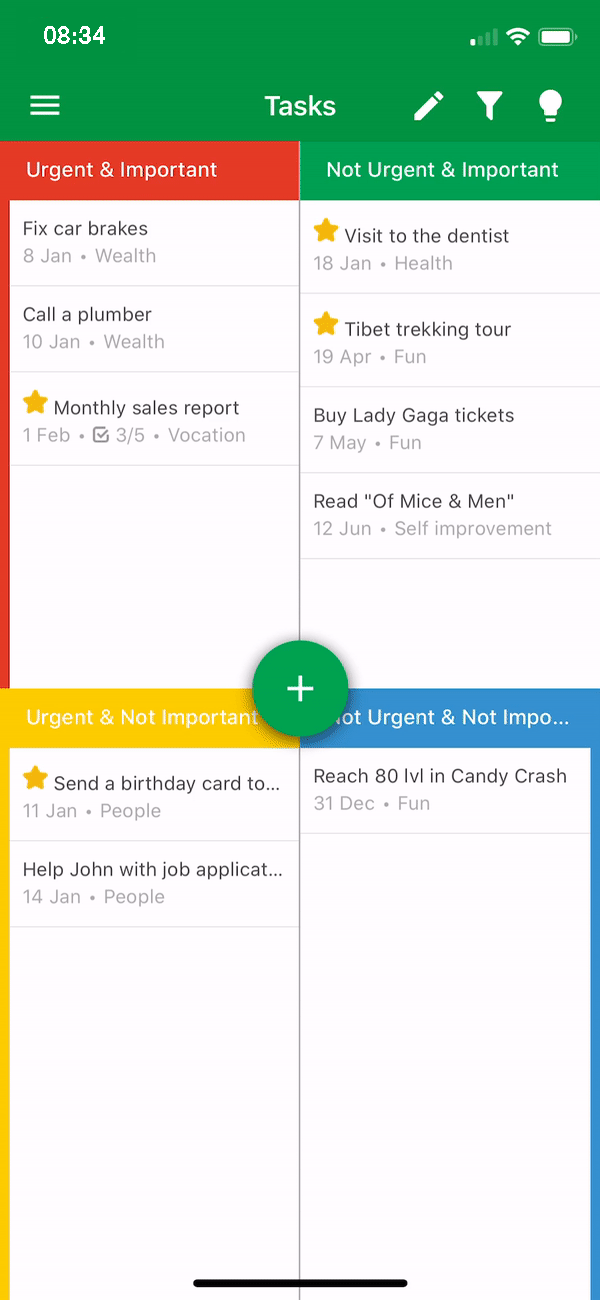Eisenhower Matrix
The urgent tasks are not important, and the important are never urgent. — Dwight D. Eisenhower
This time management approach was introduced by an American president Dwight D. Eisenhower. The core idea is to prioritize all the tasks and choose the right strategies for their implementation.
Each task is evaluated on its importance and urgency. As a result, we have four groups of tasks that are visually separated this way:

Urgent & Important category — here are your deadlines. This sector houses tasks that either could not have been planned or overdue tasks from the next group.
Nonurgent & Important is the most useful group of tasks. The timely completion of these tasks will lead to the absence of deadlines, nervous breakdowns, and a confident movement towards achieving great goals.
Urgent & Unimportant — these are urgent tasks that don't impact your life directly. For example, congratulating your colleague with their birthday, or a small service for an acquaintance, a meeting that was imposed on you, and so on. If you can delegate these tasks or give them up altogether — go ahead!
The most useless category is Nonurgent & Unimportant. Things that do not affect your life in any way and that can last forever. For example, watching TV shows, video games, and other consumers of your free time. Try to avoid such tasks.
Use in iML
- To create a task in a quadrant just drag a plus
 button there from the center of the Matrix. Then a task editing window with preset Urgency and Importance parameters will open.
button there from the center of the Matrix. Then a task editing window with preset Urgency and Importance parameters will open.

- To go to the task list of a quadrant, click on the title of its category.


- To move а tasks between categories of the matrix, simply hold your finger on it, and then drag and drop in the required category.
- The task deadline is displayed under its name.
- The Wheel of Life segment the task belongs to is displayed under its name.